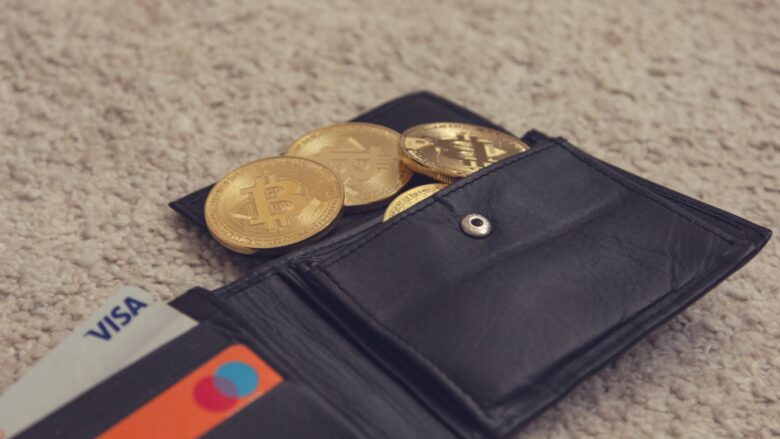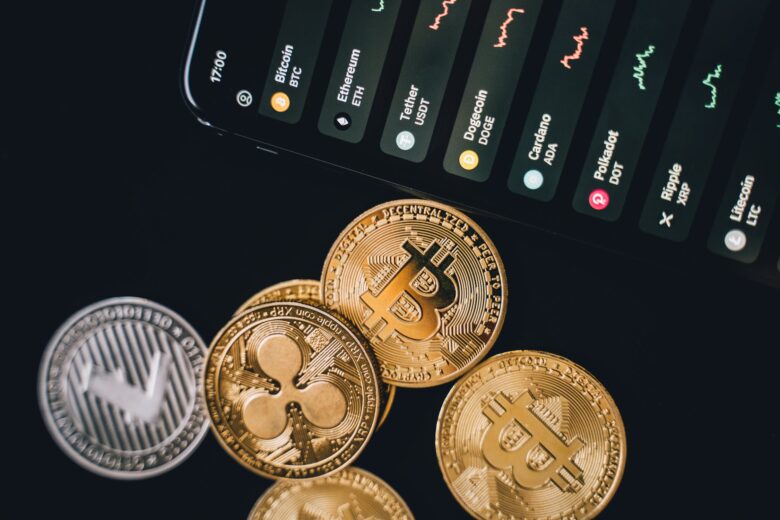Digital currencies paved the way for an entire world of illegal activities. Crypto owners often engage in theft, dark net markets, ransomware, terrorism financing, and more. Still, scams remain the single largest threat, and it’s up to us to stand in their way.
The number of fraud cases involving cryptocurrency investment scams has increased dramatically in recent months. According to the FTC, from October 2024 to June 2024, Americans filed approximately 7,000 reports of being scammed. The victims claimed to have lost over $80 million.
Phishing, fake ICOs (and other forms of token sales), blackmails, Ponzi schemes — you name it, and the crypto world has seen it.
It’s up to you to protect yourself and your money. Let’s see how you can avoid scams and which ones are the most dominant nowadays.
You can check a good example of a secure platform Currency.com for buying and selling cryptocurrency.
Most Common Types of Fraud

source: pexels.com
Exchanges
There are two types of scams you can fall victim to on cryptocurrency exchanges used to buy and sell bitcoin and other coins.
First of all, the exchange itself might be a scam. You might be part of a Ponzi scheme or another type of fraudulent organization and invest your coins only never to see them again. To avoid this, you just need to stick to safe and reputable exchanges.
The other type of cryptocurrency fraud has less to do with your choices — it’s more a case of bad luck. We’re referring to when exchanges get hacked by cybercriminals who then steal funds from the exchange. Still, it’s no secret that some exchanges have better security protocols than others, so you should always pick a platform that has all the necessary security measures in place.
Phishing
Phishing is one of the oldest plays in the book. Attackers generally pretend to be from a respectable organization and send fraudulent messages in order to extract information from you. In the crypto world, such information would be your private key, your exchange platform credentials, etc. Learn to recognize sensitive information and never give it to anyone.
DeFi and ICO

source: pexels.com
DeFi is an abbreviation for decentralized finance. It is used as an umbrella term for all apps and protocols that are based on blockchain technology. Unfortunately, many of those apps and services are fraudulent. You’ll be invited to invest your crypto and earn interest or yield, but in reality, you’ll just lose money. These projects simply vanish with your money without giving anything in return. Some use more complex tactics, including Ponzi schemes, with investors being the final victims.
ICO scams are similar. During the initial coin offering (ICO), the project you’re investing in will promise plenty of profit, but none of that is actually true. In fact, ICO scam creators go one step further — they even create identities of team members and have entire white papers written to support their project. In all honesty, it’s sometimes very difficult to tell the real from the fake ones.
The best way to avoid these scams is to actively follow the news, forums, Reddit, and social media groups to learn what other investors have to say about a certain crypto investment opportunity. In most cases, DeFi, ICO, and similar scams are debunked when investors put effort into researching them. More information you can find at deficoins.io.
Where Is It Safer to Store Cryptocurrency?

source: pexels.com
To maximize your protection and keep your crypto wealth safe, you have to choose secure storage. Here are the available options.
Custodial Wallets
These are the crypto wallets where another entity has access to your private keys. It’s technically under their control, pretty much like banks are in control of your bank account.
These wallets are the most convenient to use as they are often connected to your exchange, and you can easily transfer money, but they aren’t the safest option out there. Simply put, storing a lot of money on such wallets is not a good idea, as they are the most likely to fall victim to cyberattacks.
Digital Non-Custodial Wallets
If you don’t like the idea of having your funds stored in a “centralized” wallet, you can always download and install a noncustodial application (sometimes, they are browser-based so there’s no need to actually install them). This way, you’re the only one with access to your private keys. These wallets are considered much safer than their custodial counterparts.
“Paper” Wallets

source: pexels.com
These are a form of noncustodial wallets that are printed out. In other words, you’ll have your keys and QR codes printed on a piece of paper, which then becomes your wallet. This option is secure in terms of personal data access, but you have to take responsibility for keeping the paper safe at all times so that your wallet is not stolen, lost or destroyed.
Hardware Wallets
These are the safest type of wallets out there, and we suggest using them if you want to store large sums. They are not permanently connected to the network, so your funds have the highest possible protection. There are two downsides to using hardware wallets, however. First, you have to buy them (and they may cost anywhere between $50 and $500). Second, you have to connect them every time you want to use them, which is slightly more inconvenient compared to other wallets.
Basic Tips to Prevent Fraud
If you want to stay safe, here’s what you can do.
Beware of Phishing
First, we suggest reading more about all the popular (and unpopular) phishing scams related to cryptocurrency to learn how to recognize when it’s happening so you can stay safe. Moreover, we cannot stress enough how important it is to never disclose your private keys to anyone. Keep them hidden at all times.
Use Reliable Services

source: pexels.com
As mentioned above, there are all kinds of scam crypto services, including DeFi projects, exchanges, marketplaces and more. Your best bet is to stick to reliable platforms, so make sure to read experts’ opinions and user reviews before using a crypto service.
Install Antivirus
Antivirus software will always recognize potential attacks and threats. All antivirus brands regularly update their apps to detect the latest fraudulent operations and put a stop to them.
Conclusion
The crypto world is still fairly young, and there are plenty of crypto owners who are not aware of the potential threats. Scammers take advantage of this lack of knowledge and experience. Staying informed and cautious is the best protection against fraud, so make sure to keep tabs on the latest crypto news and use the most advanced security tools available to you.

